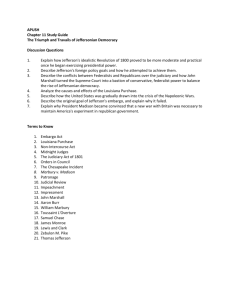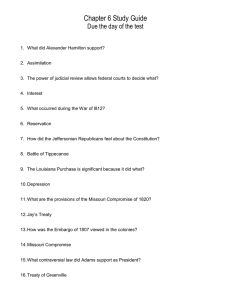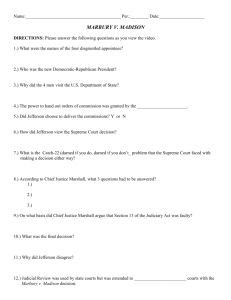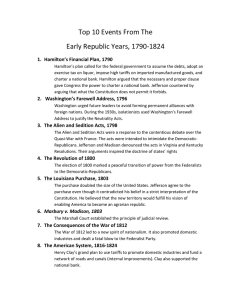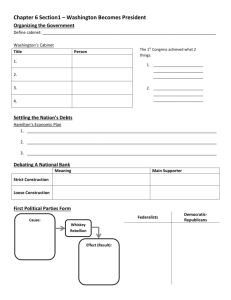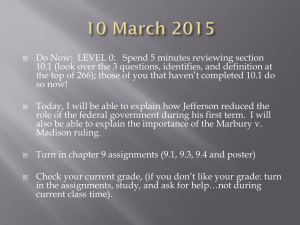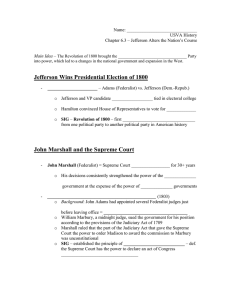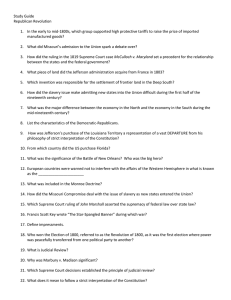Chapter 8: Jeffersonianism and the Era of Good Feelings
advertisement
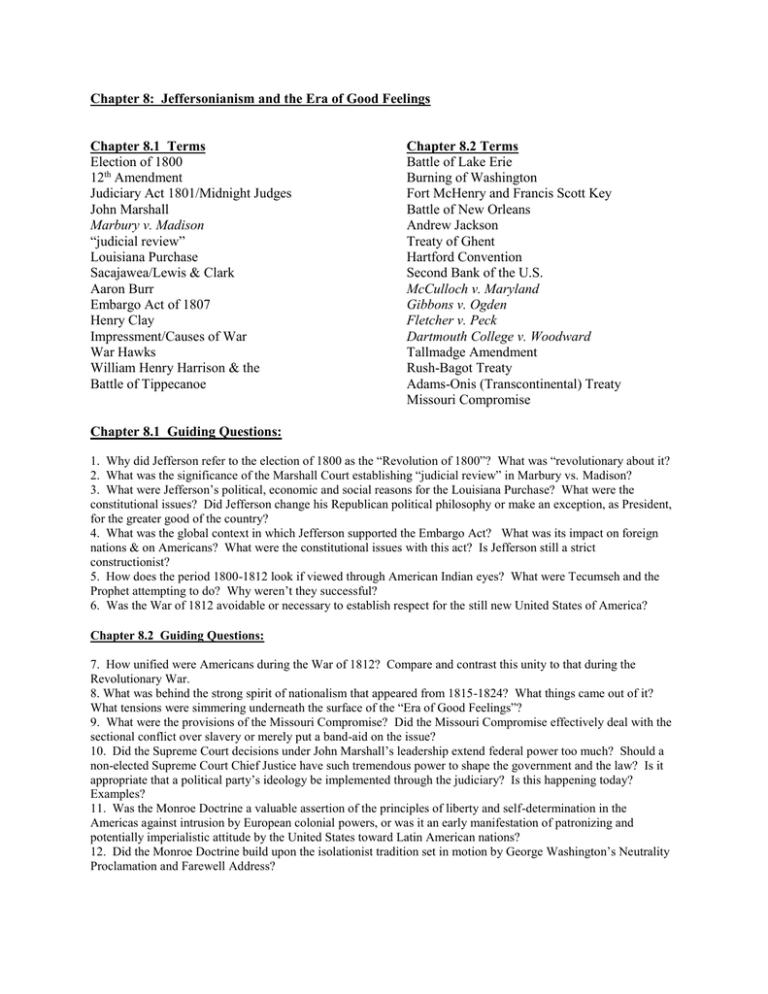
Chapter 8: Jeffersonianism and the Era of Good Feelings Chapter 8.1 Terms Election of 1800 12th Amendment Judiciary Act 1801/Midnight Judges John Marshall Marbury v. Madison “judicial review” Louisiana Purchase Sacajawea/Lewis & Clark Aaron Burr Embargo Act of 1807 Henry Clay Impressment/Causes of War War Hawks William Henry Harrison & the Battle of Tippecanoe Chapter 8.2 Terms Battle of Lake Erie Burning of Washington Fort McHenry and Francis Scott Key Battle of New Orleans Andrew Jackson Treaty of Ghent Hartford Convention Second Bank of the U.S. McCulloch v. Maryland Gibbons v. Ogden Fletcher v. Peck Dartmouth College v. Woodward Tallmadge Amendment Rush-Bagot Treaty Adams-Onis (Transcontinental) Treaty Missouri Compromise Chapter 8.1 Guiding Questions: 1. Why did Jefferson refer to the election of 1800 as the “Revolution of 1800”? What was “revolutionary about it? 2. What was the significance of the Marshall Court establishing “judicial review” in Marbury vs. Madison? 3. What were Jefferson’s political, economic and social reasons for the Louisiana Purchase? What were the constitutional issues? Did Jefferson change his Republican political philosophy or make an exception, as President, for the greater good of the country? 4. What was the global context in which Jefferson supported the Embargo Act? What was its impact on foreign nations & on Americans? What were the constitutional issues with this act? Is Jefferson still a strict constructionist? 5. How does the period 1800-1812 look if viewed through American Indian eyes? What were Tecumseh and the Prophet attempting to do? Why weren’t they successful? 6. Was the War of 1812 avoidable or necessary to establish respect for the still new United States of America? Chapter 8.2 Guiding Questions: 7. How unified were Americans during the War of 1812? Compare and contrast this unity to that during the Revolutionary War. 8. What was behind the strong spirit of nationalism that appeared from 1815-1824? What things came out of it? What tensions were simmering underneath the surface of the “Era of Good Feelings”? 9. What were the provisions of the Missouri Compromise? Did the Missouri Compromise effectively deal with the sectional conflict over slavery or merely put a band-aid on the issue? 10. Did the Supreme Court decisions under John Marshall’s leadership extend federal power too much? Should a non-elected Supreme Court Chief Justice have such tremendous power to shape the government and the law? Is it appropriate that a political party’s ideology be implemented through the judiciary? Is this happening today? Examples? 11. Was the Monroe Doctrine a valuable assertion of the principles of liberty and self-determination in the Americas against intrusion by European colonial powers, or was it an early manifestation of patronizing and potentially imperialistic attitude by the United States toward Latin American nations? 12. Did the Monroe Doctrine build upon the isolationist tradition set in motion by George Washington’s Neutrality Proclamation and Farewell Address?
